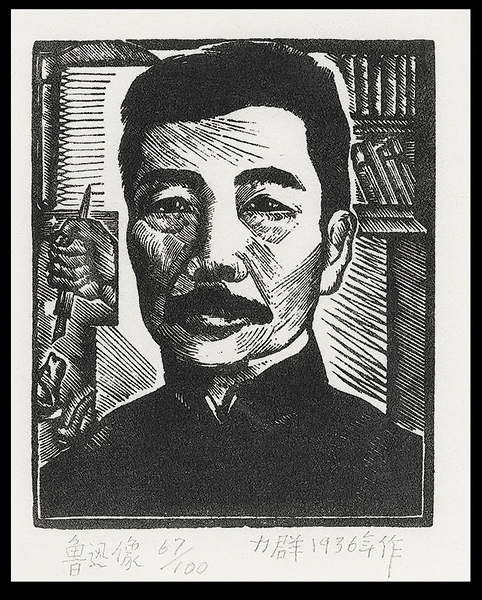

Lu Xun (1881-1936), a prominent scholar and writer in 20th-century China, is known for his critical viewpoints of society and human nature. He was also a keen collector of traditional Chinese arts and crafts, as well as Western art.
His intense interest in Chinese printing tradition and modern Western woodcuts was the reason he started the "New Woodcut Movement" in the 1930s, through which he motivated a younger generation of artists to produce woodcuts integrating the styles of both traditions, as a way to depict the realities of people at the grass roots of society, particularly the underprivileged, and to criticize social injustice.
The far-reaching influence of the New Woodcut Movement has continued to document important moments in the country's history and milestones in social progress throughout the decade.
To promote the making of woodcuts, the China National Academy of Painting is showing more than 200 modern pieces, half of its own woodcut collection, at its art museum in Beijing until Friday.
The New Woodcut Movement was born at a time of revolutionary zeal, says Yan Dongsheng, Party secretary of the China National Academy of Painting. He says woodcuts were more accessible and affordable for artists to make, and for people to buy, thereafter becoming a main form of art to educate people and to spread ideas of social progress.